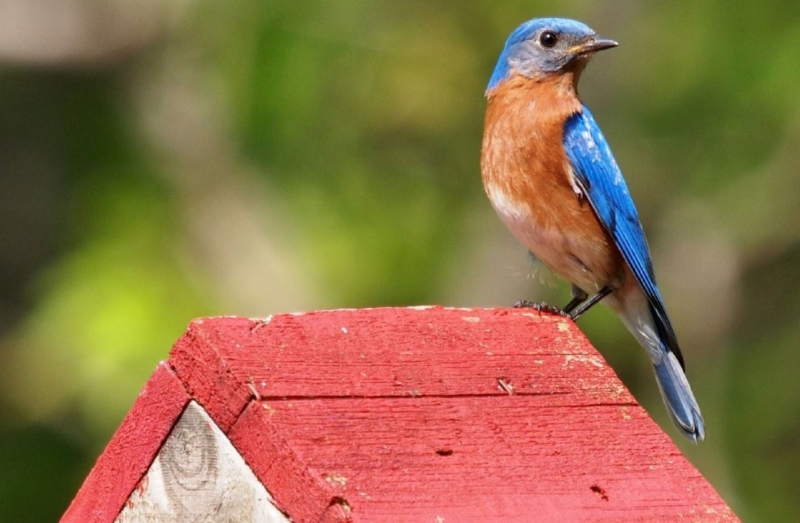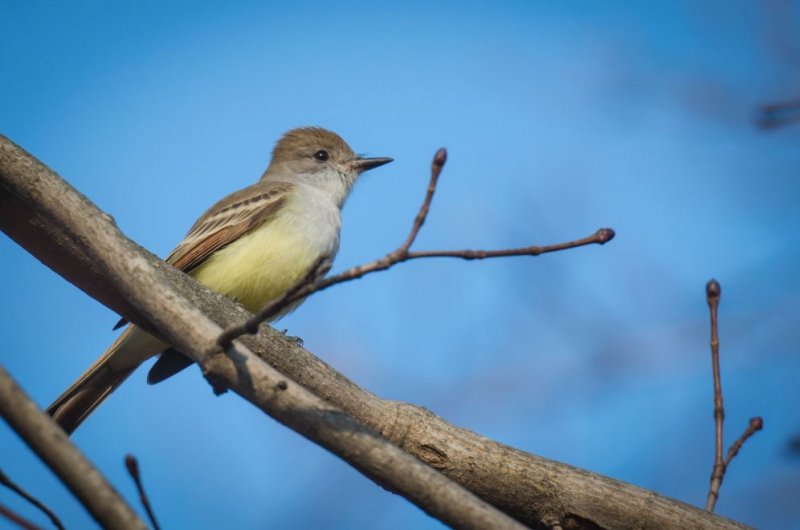Post Traumatic Stress Disorder (PTSD), which feels frightened and experiences constant anxiety after experiencing serious accidents, such as wars, natural disasters, or other accidents or incidents. This psychological reaction, which occurs when you experience life-threatening extreme stress, can be particularly dangerous as it can lead to chronic health problems.
However, recent studies have also raised concerns that birds exposed to noise pollution for a long time may also experience PTSD symptoms.
The study, published in the National Academy of Sciences News, revealed that birds living near natural gas processing facilities in northern New Mexico are suffering from chronic stress due to oil and gas work. The health of the birds also deteriorated.
The researchers observed about 240 nests around the natural gas treatment facility and found that the hormone levels changed as the hypervigilance, an extremely developed state of sensation that senses anxiety, distraction, and danger, increased in birds Explained.
As the noise pollution continued, the birds were suffering from paranoia because of their poor ability to hear general sounds such as the approach of predators. Young birds were also suffering from noise-induced stress, especially when growth and development were not fully developed or feathers grew poorly. Some did not survive.
 |
| ▲ Source = Western Bluebird / Pixar Bay |
Rob Guralnick, Curator of the Biodiversity Informatics at the Florida Museum of Natural History, pointed out that noise pollution from natural gas facilities affects birds' senses. Birds also do not know what's happening around them, so the stress level also increases. "Birds have been permanently stressed because they do not know what is happening," he warned. "Certain stresses affect the physiological health and overall fitness of birds, as well as diminishing aspects of human health."
The researchers also observed three species of Western Bluebird, Mountain Bluebird, and Ash-throated flycatcher, which live near the rattlesnake canyon regulatory area, all with natural gas wells and compression devices I was living in a place. This is also a noise pollution area where the low humming sound from the device is constantly heard.
Studies have shown that the level of corticosterone, a stress hormone in the birds of the region, is low, and the physical impact of noise pollution on birds, along with these hormones, has proved a link between noise pollution and stress. In other words, the low level of the costiocertheron is an indication that the animals are experiencing a rather high amount of stress. In addition, 10 dB increase in noise level has shown that animal habitat growth is reduced by 90%.
The researchers conclude that this is the first connection between human development and the decline in animal populations. Gurannik said that while degradation of habitat meant only environmental changes in a physical way, this time the degradation of the acoustic environment is directly linked to genuine conservation issues.
 |
| ▲ Source = 쟂 쟂 / Wikimedia Commons |
Clint Francis, an ecologist at the California Polytechnic University, said earlier studies have shown that living in polluted areas is beneficial to birds in some way. In other words, birds were tolerant to noise and demographics could be changed to adjust the community structure. It also said that some birds could thrive because noise limited the predators' access. However, the study found that birds in the noisy area were experiencing PTSD.
Meanwhile, Christopher Lowry, a Colorado stressor physicist who analyzed the results of the study, responded that the symptoms of PTSD in birds are not surprising. He explained that organisms exposed to long-lasting stress or pressure usually experience negative reactions to stress. According to him, if there is a constant stimulation and awakening, and there is no way to neutralize this situation, the birds will suffer from chronic fatigue.
Francis also warned that loss of hearing due to noise pollution could affect the ability to detect danger, which could affect animal health. This makes the birds feel nervous because they can not figure out the potential hazards around them. "Animals constantly research their environment and make risk-based decisions," he warned. "One of the things that noise does is really detract from the sense channel."
![[Issue] Birds suffering from noise pollution … Pain in Post-Traumatic Stress Disorder issue birds suffering from noise pollution pain in post traumatic stress disorder](https://moontore.com/wp-content/uploads/2019/02/issue-birds-suffering-from-noise-pollution-pain-in-post-traumatic-stress-disorder-1200x700.jpg)


